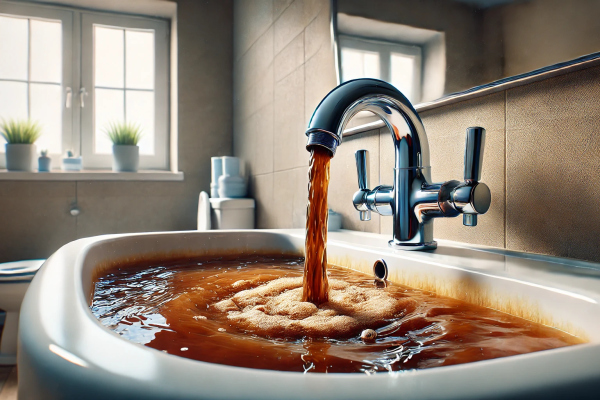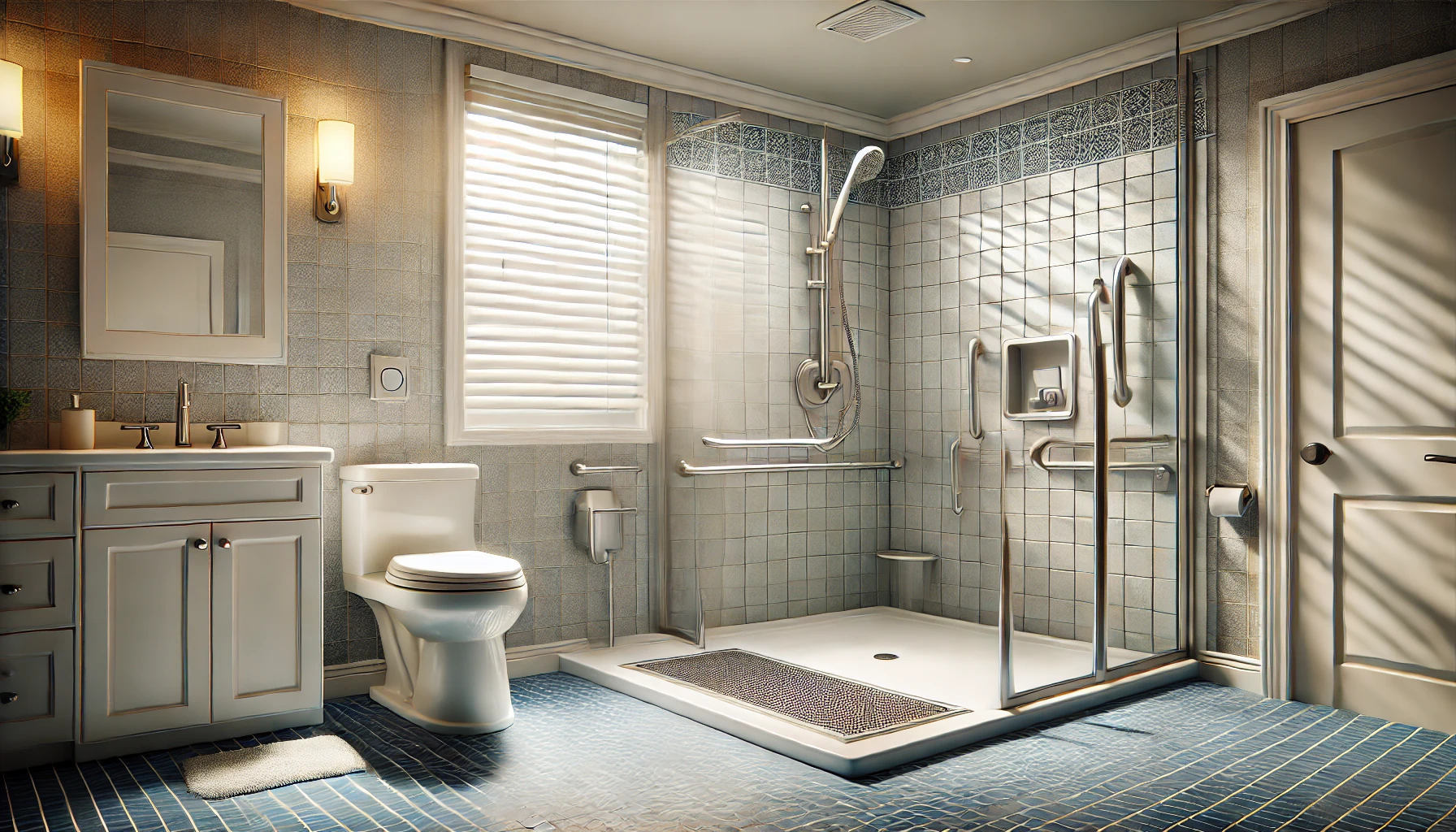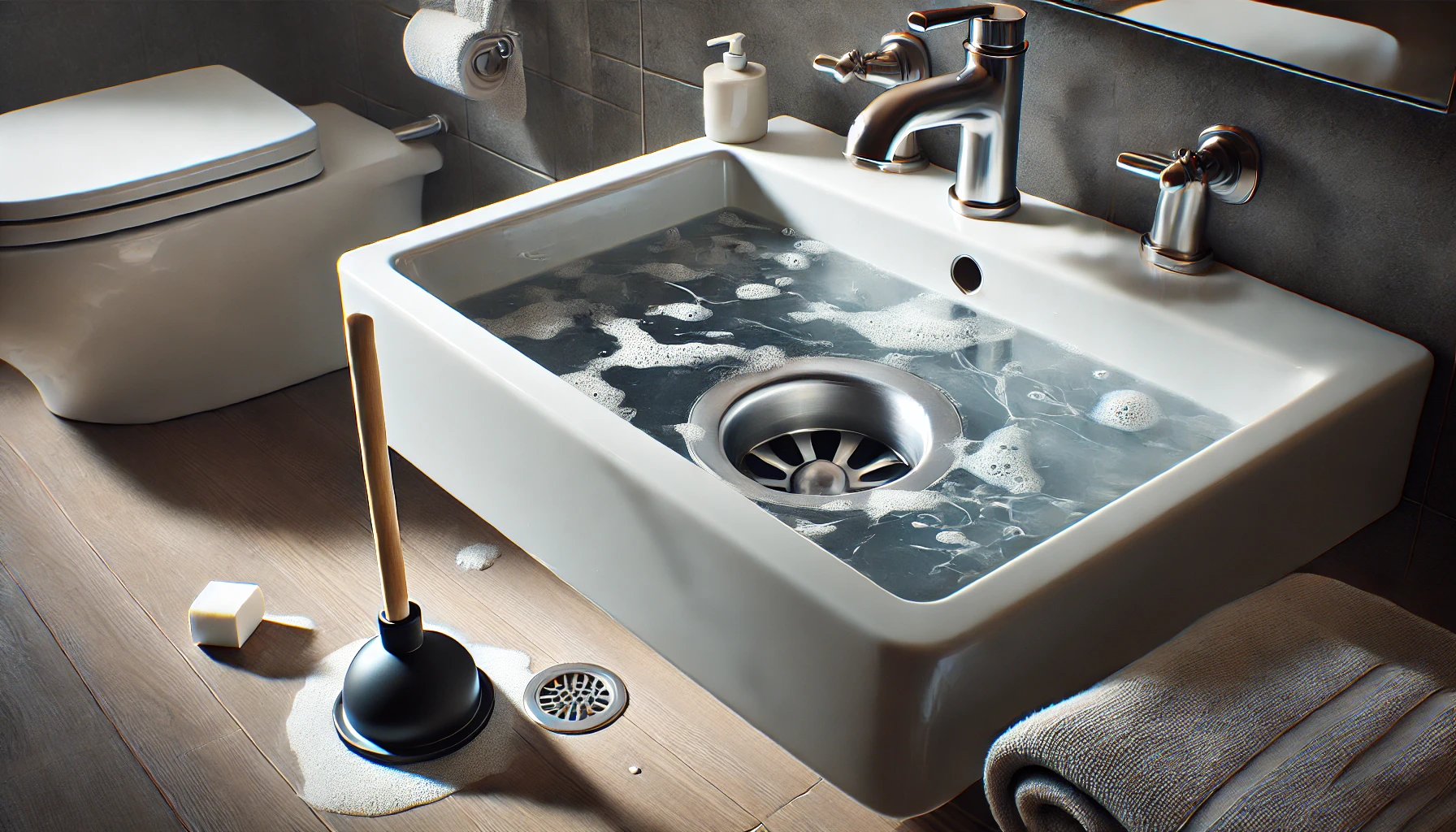
Rusty Water? Here's How to Find the Source and Fix It Fast!
Imagine this: you turn on your tap, expecting clean, fresh water, but instead, rusty, brown water starts flowing. The smell is metallic, and the taste isn’t much better. What’s going on? Is your plumbing system failing? Should you panic, or is there an easy fix?
In this article, we will explain what causes rusty water, how to track down the source of the problem, and what you can do about it. Whether the issue lies with your home’s plumbing system, the local water supply, or your water heater, we’ll cover the essential steps to get your water flowing clean and clear again.
Understanding Rusty Water
What Causes Rusty Water?
Rusty water typically appears when iron particles from corroding pipes or water heaters mix with the water supply. This can cause the water to take on a reddish-brown hue, often accompanied by a metallic odor or taste. The rust particles are the result of oxidation, a natural process where iron reacts with water and air. While these particles don’t pose a significant health risk for most people, they can leave unsightly stains on sinks, tubs, and laundry. However, people with certain conditions like hemochromatosis (a rare iron overload disorder) may need to be cautious about excessive iron exposure.
Why Rusty Water is a Bigger Problem Than It Seems
Rusty water can be more than just an inconvenience; it can cause long-term damage to your plumbing and appliances. Over time, rust can accumulate in your pipes and water heater, decreasing their efficiency and potentially leading to expensive repairs or replacements. For homeowners in Texas, the extreme heat and hard water prevalent in many areas can accelerate the rusting process. Regular maintenance and timely identification of the source of the rust are key to avoiding these costly issues.
Identifying the Source of Rusty Water
The first step in solving your rusty water issue is to figure out where it’s coming from. Is it your home’s plumbing system, your water heater, or the public water supply?
Is the Rust Coming from Your Pipes or Water Heater?
Start by conducting a simple test:
Check Cold Water First: Turn on a cold water faucet in your home (preferably one where you first noticed the rusty water). Fill a glass with water and examine it. If the water looks rusty, it could be your pipes corroding.
Let the Water Run: Let the cold water run for a few seconds to see if the rust clears up. If it does, the issue may be with a section of piping that needs replacement.
Check Hot Water: Now, run the hot water for a few seconds. If the rust is only present in the hot water, the problem likely lies within your water heater. Rusting in water heaters is common as they age, especially if the anode rod isn’t replaced regularly (more on that later).
If rusty water is coming from both taps, it’s time to call your local water authority or public utilities to report the problem.
Is the Rust Coming from the Public Water Supply?
If your tests indicate that both hot and cold water are rusty, the cause may be external—in the public water system. Rust in municipal water lines is more common in older cities with outdated infrastructure. In some areas of Texas, the water systems haven’t been refurbished in decades, making them prone to corrosion. In these cases, the water utility company is responsible for addressing the issue.
If you suspect the rust is from the public water supply, report the issue to your water company immediately. They will be able to inspect the water main and address any necessary repairs.
How to Handle Rusty Water at Home
Whether the problem is within your home’s plumbing or with your water heater, it’s important to take action. Here’s what you can do:
When to Call a Plumber
In some cases, DIY solutions may not be enough, and you’ll need to call a professional plumber. If you notice persistent rusty water in your home, or if it’s coming from both taps, contacting a plumber is your best option. They can help identify the exact source of the rust, determine whether pipes need replacing, and offer a solution.
Plumbers in Texas are familiar with local conditions, such as hard water and the effects of heat on pipes. A professional plumber can provide an inspection to ensure that your plumbing system is in good shape and help prevent future rust issues.
Replacing Your Water Heater
If your water heater is the culprit, it’s best to replace it. Once a water heater begins to rust, there’s no way to reverse the damage. A replacement is the only permanent solution. But don’t worry—there’s something you can do to extend the life of your new water heater: regularly replace the anode rod.
The anode rod attracts the corrosive particles, preventing them from attacking your water heater’s tank. However, once the rod wears out, the corrosion will begin attacking the tank. The lifespan of an anode rod is typically about five years, but if you use a water softener, this can decrease the rod’s lifespan. Regular inspections can help you stay ahead of potential issues.
Preventing Future Rust Issues
To avoid future issues with rusty water, here are some preventative measures:
- Flush your water heater annually to remove sediment buildup.
- Replace the anode rod every few years.
- Install a whole-house water filtration system to help reduce sediment and mineral buildup.
- Schedule routine plumbing inspections, especially if you live in an older home or area with hard water.
By taking proactive steps, you can prevent rust from affecting your plumbing and water supply.
Conclusion: Get the Clean Water You Deserve
Rusty water is a serious issue that can impact your home’s plumbing, appliances, and water quality. By identifying the source early and taking action, you can avoid costly repairs and restore your water to its original quality. Whether the rust is coming from your pipes, water heater, or public supply, the key is acting fast and reaching out to professionals when necessary. In Texas, where extreme weather and hard water conditions can accelerate corrosion, regular maintenance and timely repairs are essential for keeping your plumbing system in top condition.






